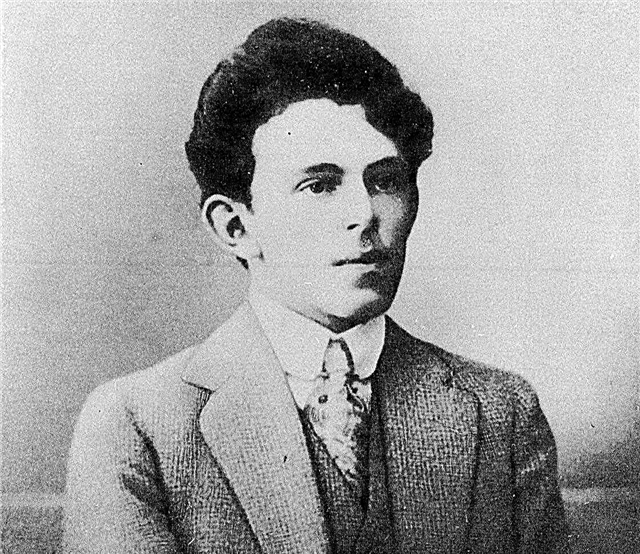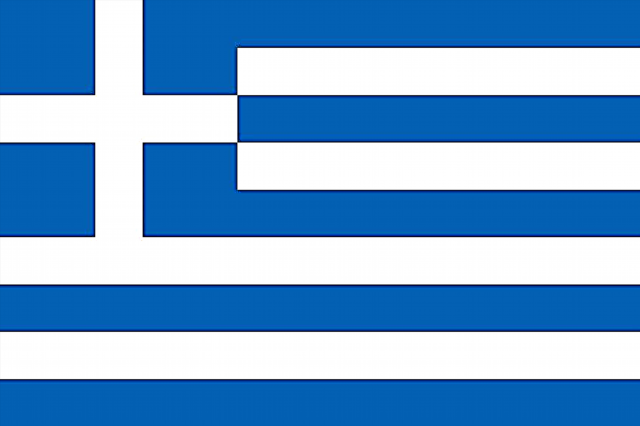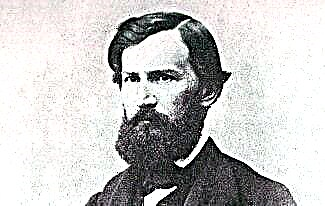Even a small fragmentary narration about the life and death of Jeanne d'Arc cannot do without mentioning mysticism and the feeling of dirty hands.
On the one hand, at the moment when the French nobility is sitting out, sorry, with full pants outside the walls of castles or in the field, but far from the British, a teenage peasant appears (this is what the noble knights called her, who had nothing and no one to be ashamed of except their own cowardice), which rouses commoners to fight against foreigners. A girl, where by washing, where by rolling, makes dukes, earls and other peers fight and practically defends the independence of her country.
On the other hand, the dukes and counts, as soon as the opportunity presents itself, seem to be removed as God's chosen Joan from the person of the king and, by washing their hands, give the go-ahead for the execution of the Virgin of Orleans.
How could a commoner convince the nobles to fight at a critical moment? How could her gift almost immediately refuse with a small, in principle, failure?

And the Sabbath, which began with the glorification of Jeanne after the so-called acquittal process, testifies that the stigma was in the cannon both at the French royal house, and among the nobility, and at the Catholic Church. Today's researchers can take a long time to analyze the similarity of the name of the chief judge of the Virgin of Orleans Pierre Cauchon with the French word "monkey" and blame him for Jeanne's death (some even go so far as that Cauchon saved Jeanne with his sentence, and then she lived incognito for many years). Cauchon has become a convenient screen - in fact, shouldn't the counts, dukes, or, God forbid, kings be blamed for the death of the 19-year-old girl. Jeanne was quickly rehabilitated, whoever needed, was anathematized, and the church and both crowns remained clean and sinless.
Necessary disclaimer: in the facts and stories below, the names “English” and “French” are extremely arbitrary. Know then she wanted to sneeze on national or geographic affiliation - everyone owned land both on that and on this side of the English Channel. Commoners, on the other hand, determined their nationality from the opposite: "We are not Burgundians" or "We do not want to become British." Therefore, “the British” should be understood as “the nobility and the troops, at that time fighting for the interests of the English king”, and the word “French”, respectively - “Know and the troops remained loyal to the French crown”. There were no fundamental differences between the parties to the conflict, which lasted more than 100 years.
1. Jeanne was born in the village of Domrémy on the border of France and the Duchy of Lorraine in northeastern France. To this day, the house of the Virgin's family and the church with the font in which she was baptized have survived.
2. The date of birth of Virgo is not exactly known. The generally accepted date of January 6, 1412 is nothing more than a compromise of historians - Jeanne could well have been born in 1408, and the date of the child's birth could then be timed to coincide with a popular church holiday.
3. The real name of Jeanne is Dark. The variant with the “noble” spelling “d'Ark” appeared after her death.
4. Jeanne began to hear mysterious voices from the age of 13. They belonged to Saint Catherine, Saint Margaret and the Archangel Michael. Voices, without much detail, told the girl that her mission was to save France.
5. In the spring of 1428, the saints gave Joan specific instructions - to go into the army to Captain Robert de Baudricourt and ask him to tell the Dauphin that he should not get involved in battles until the spring of next year. De Baudricourt ridiculed the visitor and sent her home.
6. After returning from the army, Jeanne learned that the invasion of the Burgundians ravaged their places. This strengthened her conviction of her own destiny. A year later, she again went to the army, simultaneously managing to fight off her father's intentions to marry her.
7. Jeanne's second appearance in the army was received more favorably. At the same time, the idea of men's clothing arose - it was safer to travel in it.
8. Dauphin, the future king Charles VII, during the first reception of Jeanne tried to mix with other representatives of the nobility, but the girl unmistakably recognized him. Jeanne immediately explained to him the essence of the mission allegedly entrusted to her.
9. Jeanne was checked by two commissions. One established her virginity, the second was convinced that there was no connection with the devil. Answering the questions of the second commission, Virgo made 4 predictions: Orleans will be freed from the siege, the king will be crowned in Rheims (the traditional place of coronation, at that time captured by the British), the French will recapture Paris, and the Duke of Orleans will return from captivity. The first two predictions came true within the specified time frame, the rest also came true, but after 7 and 11 years.
10. The legend that France will be saved by the appearance of the Virgin existed in the country even before the appearance of Jeanne d'Arc. This is documented.
11. On March 22, 1429, Jeanne sent a letter to the English king and the highest representatives of the nobility, in which she demanded that the British get out of France on pain of death. The British did not take him seriously, although they ordered the execution of the messenger who delivered the letter.
12. Jeanne d'Arc had three swords. One was presented to her by de Baudricourt, the second, supposedly a sword that belonged to Karl Martell himself, was found in one of the churches, the third was captured in battle from a Burgundian knight. They captured the Maiden of Orleans with the last sword.
13. On the banner with which Jeanne went into battle, God was depicted holding the Earth, surrounded by angels.
14. The siege of Orleans by the British was largely formal - they did not have enough people even to close the chain of posts and secrets around the city. Therefore, Jeanne and other military leaders easily made their way into the city on April 28, 1429 and were enthusiastically received by the townspeople.
15. The military leaders who were in Orleans, secretly from Jeanne decided to attack Saint-Loup - a distant fortification of the British. The attack had already begun to choke when Jeanne, who arrived in time with a banner in her hands, ran up the slope of the fortification, inspiring the French for a decisive attack. Fort Saint-Augustin was taken in a similar way: seeing the Virgin, the militia, already ready to flee back to Orleans, turned around and knocked the British out of the fortification.
16. On May 7, in the battle for the Turelle fortress, Jeanne was wounded by an arrow in the shoulder. The injury was serious, but Jeanne recovered pretty quickly. Perhaps positive emotions contributed to this: the French took the Turret, and the British lifted the siege the next day and left.
17. Noble knights, mostly sitting outside the walls of Orleans, did not mention Joan in the victorious report. It was only under pressure from the most conscientious of them that a postscript was added to the document, mentioning the participation of the Virgin “in some battles”.

18. The battle for Orleans, in which Jeanne saved France, could be the last for the country. Despite the fact that the city is located in the center, even closer to the north of France, the French did not have a single fortress south of it. The unevenness of fortifications and communications is a known weakness of the feudal states. The capture of Orleans allowed the British to cut the lands that formally remained under French rule in two and destroy the opposing troops separately. Thus, lifting the siege of Orleans is a key moment of the Hundred Years War.

"Great France, and nowhere to retreat - behind Orleans", - Jeanne might say
19. During negotiations with representatives of Trois - Jeanne persuaded them to surrender the city without resistance - a certain brother Richard baptized Jeanne and sprinkled her with holy water. “Don't worry, I won't go away,” the Virgo reacted with a smile.
20. The coronation of Charles VII took place on July 17, 1429 in Reims. After the ceremony, Jeanne d'Arc turned to the king and predicted that she would soon leave the king and her family.
21. Almost against the will of the king, Jeanne led the soldiers to storm Paris. Only a severe wound in the leg stopped her. And Karl ordered to withdraw the troops from the French capital.
22. As a sign of Jeanne's merits, the king exempted her village from taxes. The inhabitants of Domrémy did not pay them until the French Revolution.
23. It can be assumed that the capture of Joan at Compiegne was not the result of betrayal. The Virgin of Orleans led the sally from the besieged city, while the Burgundians launched a sudden flanking attack. The French rushed back to the city, and Guillaume de Flavi, fearing that the enemy would burst into the city on the shoulders of the fleeing, gave a well-founded order to raise the bridge. On the other side of the moat were Jeanne, her brother and a handful of other soldiers ...
24. The British, through intermediaries, bought the Virgin from the Count of Luxembourg for 10,000 livres. Neither Charles VII nor other high-ranking Frenchmen lifted a finger to redeem or exchange Jeanne, although ransom and prisoner exchange were quite popular during that war.
25. Jeanne twice tried to escape from captivity. The first time she was caught in the courtyard of the castle, and the second time, the tied sheets, which she used as a rope, were torn off.
26. During interrogations of the Inquisition, Jeanne answered questions not only firmly and clearly, but also witty and even boldly. To the question of one of the members of the court, in what language the voices speak to her, asked with a monstrous Provencal accent, Jeanne replied: "On much better than yours."
27. The court was unable to accuse Jeanne d'Arc of heresy. She was formally executed for wearing men's clothing. In other words, she was doomed as soon as she stood trial.
28. Jeanne was burned at Rouen on May 30, 1431.

Without shedding blood ...
29. After the publication of Voltaire's poem "The Virgin of Orleans", in which the author described the Virgin very impartially, one of the descendants of Jeanne's brother sent Voltaire a challenge to a duel, accompanying it with sufficient hype. It is easy to guess that Voltaire, supposedly not afraid of either God, or the devil, or kings, refused the duel, citing poor health.
30. The famous Gilles de Rais (the prototype of the sinister Bluebeard), who fought with Jeanne and almost managed to save her, bowed before the Virgin, glorifying her in every possible way. Contemporaries argued that if Gilles de Rais was guilty of the crimes imputed to him, his mind began to give up precisely after Jeanne's death.









